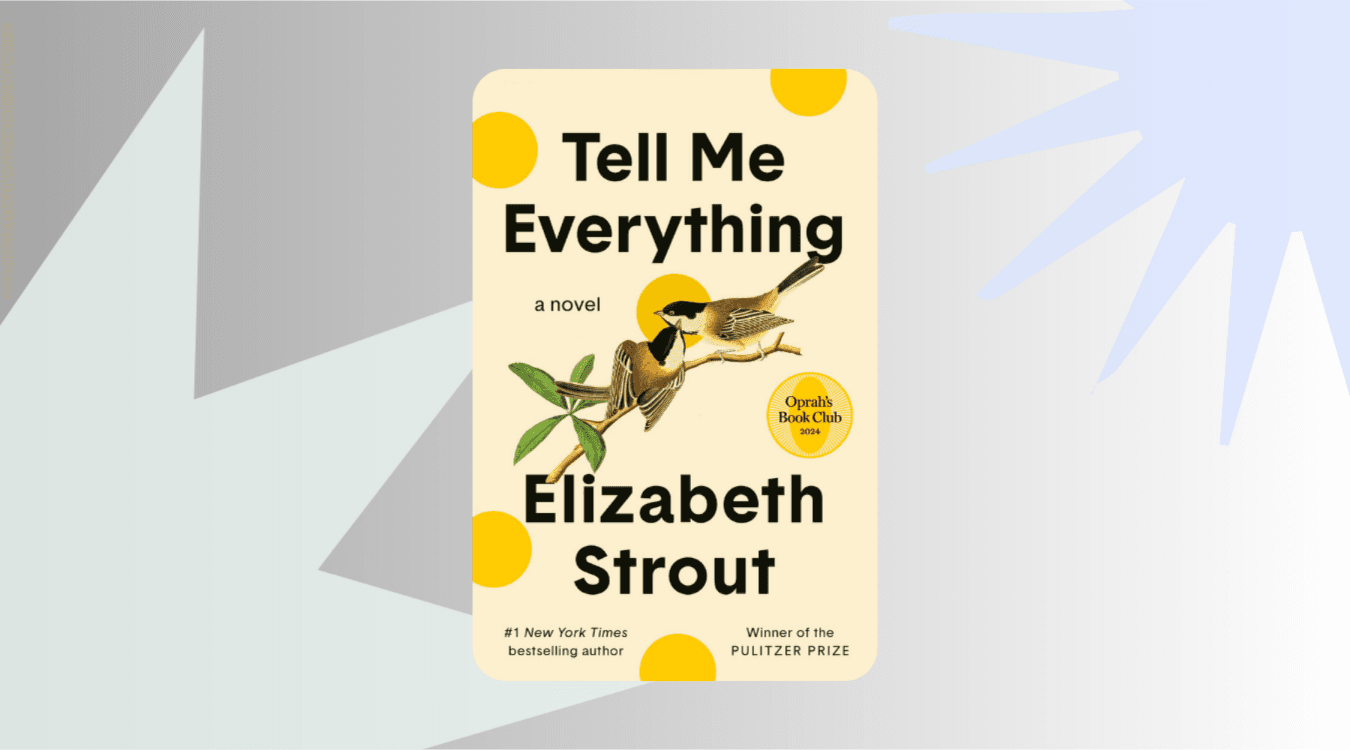Elizabeth Strout’s Tell Me Everything is a quiet yet powerful novel about the deep human need to be seen and heard. Bringing together characters like Lucy Barton, Bob Burgess, and Olive Kitteridge, Strout explores aging, memory, and emotional truth through the everyday lives of people in Crosby, Maine. Rather than dramatic twists, the novel finds meaning in quiet conversations and unspoken histories—showing that every life holds a story worth telling.
- It was selected as the 107th book for Oprah’s Book Club — which boosts visibility and indicates its cultural/literary significance.
- It offers a kind of “crossover” for Strout’s characters from many of her novels — a treat for readers familiar with her work.
- The writing continues Strout’s reputation for deeply human, quietly powerful prose — character-driven, introspective, exploring how ordinary lives matter.
This article explores the novel’s themes and offers thoughtful book club questions to deepen your reading experience.
Tell Me Everything Book Club Questions
The Act of Being Seen:
The title Tell Me Everything suggests a need to be truly known. Which characters are able to share their full truth, and which remain guarded? What do you think is at stake for them in revealing—or refusing to reveal—their story?
Lucy Barton as a Listener:
Lucy is often the emotional anchor for others. Do you see her as a passive recipient of stories or as someone shaping them? Is listening an act of power, compassion, or both?
Moral Ambiguity & Judgment:
In Bob’s legal case, do you believe justice is the same as truth? How did your moral perception of the accused evolve as the story unfolded? What does Strout want us to question about fairness and empathy?
Aging & Looking Back:
Several characters are at the end of their lives and reflecting on their past. Do you think it’s possible to find peace late in life even if there was hardship or regret? Which character embodies this most powerfully?
Loneliness vs. Solitude:
Loneliness is a recurring theme. How does Strout portray the difference between being alone and feeling alone? Which moments in the novel capture this distinction most powerfully?
The Invisible Threads Between People:
Strout’s characters reappear across different books and intersect in surprising ways here. What message is she sending about how people influence each other’s lives—even when they aren’t aware of it?
Confession as Relief or Burden:
When characters share painful memories, do you feel it liberates them, or deepens their sorrow? Is telling your story always healing, or can it reopen wounds?
The Legacy of Ordinary Lives:
Many characters are not extraordinary in a traditional sense—they are teachers, neighbors, small-town residents. Do you think Strout is redefining what a significant life looks like?
Love in Unconventional Forms:
Romantic love, familial devotion, and quiet companionship all appear in different forms. Which relationship in the book felt most “true” to you—even if it wasn’t perfect or traditional?
Storytelling and Control:
Do characters tell the truth as it happened, or as they need to believe it happened? How does storytelling become a way to control one’s own narrative and identity?
The Role of Silence:
Silence is just as present in this novel as spoken confession. Which character’s silence spoke the loudest to you, and what do you think it represented—fear, dignity, protection, or resignation?
Generational Echoes:
How do the choices of older characters affect younger ones, even if indirectly? What does the book suggest about emotional inheritance and the stories passed down (or withheld) across generations?
Compassion vs. Enabling:
Bob Burgess is deeply empathetic—but does his compassion ever cross the line into enabling certain behaviors or denying reality? Where is the line between kindness and naivety?
The Smallness of Daily Life:
Strout often highlights mundane details—routine conversations, small gestures, quiet moments. Why do you think she chooses to focus on these instead of big plot twists? What truth is she revealing about where meaning is found?
The Body as a Vessel of Story:
Characters are aging, dealing with illness, fragility, and time. How does the novel explore the idea that the body holds memory—even when the mind doesn’t speak it?
Regret as a Character:
If “regret” were a person in this novel, how would you describe its relationship to the characters? Do they make peace with it, resist it, or surrender to it?
The Ethics of Listening:
Is Lucy always justified in absorbing others’ stories? Does listening come with an ethical responsibility? What might be the consequences of holding so many secrets?
The Search for Redemption:
Which character is seeking redemption, and do they find it? What does redemption look like in Strout’s world—public acknowledgment, private peace, or simply being heard?
The Final Message:
By the end of the book, what do you think Elizabeth Strout ultimately wants us to understand about being human? If you could summarize the emotional thesis of the novel in one sentence, what would it be?
Final Reflections:
By the end of the novel, did you feel hopeful, melancholic, or something in between? What emotional state do you think Strout deliberately leaves the reader in—and why?

